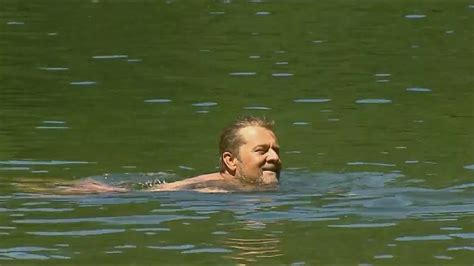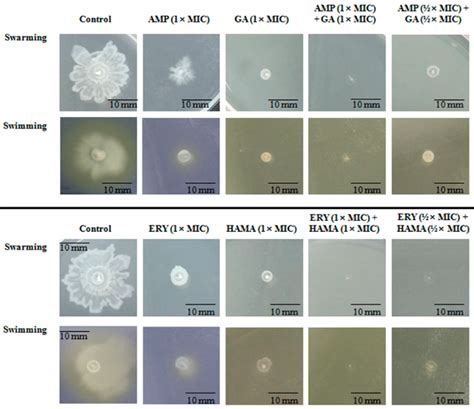
A two-year-old Oklahoma girl is fighting for her life after contracting an E. coli infection, suspected to have been contracted while swimming in a splash pad. Identified as Braelyn Beavers, the toddler has been hospitalized for over a week, battling hemolytic uremic syndrome (HUS), a severe complication of E. coli that causes kidney failure and other serious health issues.
Braelyn’s family believes she contracted the bacteria during a recent visit to a splash pad in Elk City, Oklahoma. “We are on day nine in the hospital,” Alisha Beavers, Braelyn’s mother, shared in a social media post. “She is fighting for her life due to an E. coli infection that has caused HUS.”
The Oklahoma State Department of Health is currently investigating the potential source of the infection, with splash pads emerging as a key area of concern. Splash pads, while offering a fun and refreshing way for children to cool off, can also be breeding grounds for bacteria if not properly maintained. The shallow water and constant circulation can facilitate the spread of pathogens like E. coli.
The family is now navigating a harrowing ordeal as Braelyn undergoes intensive medical treatment. “Her kidneys are not working, and she has had multiple blood transfusions,” Alisha Beavers stated. “She is currently on dialysis to help filter her blood.”
The incident has sparked widespread concern among parents and health officials about the safety of public splash pads and the importance of rigorous hygiene practices. Health experts emphasize the need for regular water testing, disinfection, and adherence to safety guidelines to minimize the risk of E. coli and other waterborne illnesses.
The Fight for Braelyn’s Life
Braelyn Beavers’s battle with E. coli began shortly after a visit to a splash pad in Elk City, Oklahoma. Symptoms rapidly escalated, leading to her hospitalization and subsequent diagnosis of HUS. HUS is a severe condition that primarily affects young children and can lead to acute kidney failure, anemia, and other life-threatening complications.
The Beavers family has been providing updates on Braelyn’s condition through social media, garnering support and prayers from the community. Alisha Beavers described the initial shock and fear as Braelyn’s health deteriorated rapidly. “It started with stomach cramps and diarrhea,” she recounted. “We initially thought it was just a stomach bug, but then she started becoming lethargic, and her urine output decreased significantly.”
Recognizing the severity of the situation, Braelyn’s parents rushed her to the hospital, where doctors quickly identified the E. coli infection and the onset of HUS. The medical team immediately initiated treatment, including intravenous fluids, blood transfusions, and dialysis to support Braelyn’s failing kidneys.
“Seeing your child hooked up to machines and fighting for her life is the most terrifying experience imaginable,” Alisha Beavers expressed. “We are doing everything we can to stay strong for her and provide her with the love and support she needs to get through this.”
As Braelyn continues her treatment, the Beavers family remains hopeful but acknowledges the long and challenging road ahead. The toddler’s resilience and spirit have inspired many, and the outpouring of support from friends, family, and strangers has provided a source of strength during this difficult time.
Splash Pads Under Scrutiny
The incident involving Braelyn Beavers has raised serious questions about the safety and maintenance of public splash pads. While these recreational facilities offer a fun and accessible way for children to cool off during hot weather, they can also pose a significant health risk if not properly managed.
Splash pads typically involve recirculating water systems, where water is sprayed or jetted into the air and then collected and reused. This recirculation process can create an environment conducive to the growth and spread of bacteria, including E. coli, Cryptosporidium, and Giardia.
E. coli, in particular, is a common concern in recreational water environments. The bacteria can enter the water through fecal contamination from swimmers, animals, or contaminated water sources. Children are particularly vulnerable to E. coli infections due to their developing immune systems and tendency to swallow water while playing.
The Oklahoma State Department of Health is conducting a thorough investigation to determine the source of Braelyn’s E. coli infection and to assess the safety protocols in place at the Elk City splash pad. The investigation will involve water sampling, facility inspections, and interviews with staff and visitors.
“We take the safety of our public recreational facilities very seriously,” a spokesperson for the Oklahoma State Department of Health stated. “We are committed to conducting a comprehensive investigation to determine the cause of this illness and to implement measures to prevent similar incidents from occurring in the future.”
Health officials emphasize the importance of regular water testing, disinfection, and maintenance of splash pads to minimize the risk of waterborne illnesses. They also recommend that parents take precautions to protect their children, such as ensuring they do not swallow water, washing their hands frequently, and avoiding splash pads if they have diarrhea or other symptoms of illness.
Understanding E. Coli and HUS
E. coli, or Escherichia coli, is a type of bacteria that normally lives in the intestines of humans and animals. Most strains of E. coli are harmless and play a vital role in digestion. However, some strains, such as E. coli O157:H7, can cause severe illness.
E. coli O157:H7 produces a powerful toxin called Shiga toxin, which can damage the lining of the intestines and kidneys. Symptoms of E. coli O157:H7 infection typically include severe stomach cramps, diarrhea (often bloody), and vomiting.
Hemolytic uremic syndrome (HUS) is a serious complication that can occur in some people infected with E. coli O157:H7. HUS is characterized by the destruction of red blood cells, leading to anemia; kidney failure; and low platelet count, which can cause bleeding problems.
HUS is most common in young children, but it can also occur in adults. Symptoms of HUS include decreased urination, fatigue, and paleness. In severe cases, HUS can lead to seizures, coma, and even death.
Treatment for HUS typically involves supportive care, such as intravenous fluids, blood transfusions, and dialysis. There is no specific antibiotic treatment for E. coli O157:H7 infection, and antibiotics may actually increase the risk of developing HUS.
Prevention and Public Health Measures
Preventing E. coli infections requires a multi-faceted approach that includes promoting good hygiene practices, ensuring food safety, and maintaining safe recreational water environments.
Public health officials recommend the following measures to prevent E. coli infections:
- Wash your hands thoroughly with soap and water after using the toilet, changing diapers, and before preparing or eating food.
- Cook meat thoroughly, especially ground beef, to an internal temperature of 160°F (71°C).
- Avoid consuming raw or unpasteurized milk, juice, or cider.
- Wash fruits and vegetables thoroughly before eating them.
- Prevent cross-contamination by keeping raw meat separate from other foods.
- Clean and disinfect surfaces that have come into contact with raw meat.
- Avoid swallowing water while swimming in pools, lakes, or other recreational water environments.
- Do not swim if you have diarrhea.
- Ensure that children who are not toilet-trained wear swim diapers and that diapers are changed frequently.
In addition to these individual measures, public health agencies play a crucial role in monitoring and preventing E. coli outbreaks. This includes conducting surveillance for E. coli infections, investigating outbreaks, and implementing control measures, such as recalls of contaminated food products.
The Legal Perspective
Cases of E. coli infection stemming from recreational facilities like splash pads can raise complex legal questions regarding liability and negligence. If a facility fails to maintain proper hygiene standards and this failure directly leads to someone contracting an E. coli infection, the facility may be held liable for damages. This liability can extend to covering medical expenses, lost income, and pain and suffering endured by the victim.
To establish negligence, it must be proven that the facility had a duty of care to ensure the safety of its patrons, that they breached this duty through negligent acts or omissions, and that this breach directly caused the E. coli infection and subsequent harm. Factors such as the frequency of water testing, the levels of disinfectant used, and adherence to established safety guidelines are all considered in determining whether negligence occurred.
Legal recourse may involve filing a personal injury lawsuit against the responsible party. Such lawsuits can be challenging, often requiring expert testimony from medical professionals and environmental health specialists to establish the link between the facility’s negligence and the E. coli infection. Moreover, the legal process can be emotionally taxing, particularly when dealing with severe health outcomes like HUS.
Families considering legal action in such cases should seek legal counsel from attorneys specializing in personal injury and premises liability. These attorneys can assess the merits of the case, guide the family through the legal process, and advocate for their rights to obtain just compensation for their losses.
Community Response and Support
The plight of Braelyn Beavers has galvanized the Elk City community and beyond, demonstrating the power of collective support in times of crisis. Local residents, friends, and strangers have rallied to support the Beavers family through prayers, donations, and acts of kindness.
A GoFundMe campaign has been established to help the family cover the mounting medical expenses associated with Braelyn’s treatment. The campaign has garnered significant attention, with individuals from across the country contributing to alleviate the financial burden on the family.
Local businesses and organizations have also stepped up to offer assistance. Restaurants have organized fundraising events, donating a portion of their proceeds to the Beavers family. Community groups have coordinated meal deliveries and childcare assistance to help the family manage their daily responsibilities while focusing on Braelyn’s care.
The outpouring of support has provided a source of comfort and strength for the Beavers family during this challenging time. “We are overwhelmed by the love and generosity of our community,” Alisha Beavers expressed. “It means the world to us to know that we are not alone in this fight.”
The community’s response underscores the importance of social support networks in helping families cope with medical crises. The collective efforts of individuals, businesses, and organizations can make a significant difference in alleviating the emotional and financial strain on families facing such challenges.
The Role of Media and Public Awareness
The media has played a crucial role in raising awareness about Braelyn Beavers’s case and the potential risks associated with splash pads. News outlets have reported extensively on the incident, highlighting the importance of hygiene and safety measures in recreational water environments.
The media coverage has prompted public health officials to issue reminders about E. coli prevention and the importance of following safety guidelines at splash pads and other recreational water facilities. It has also encouraged parents to be more vigilant about monitoring their children’s health and seeking medical attention promptly if they develop symptoms of E. coli infection.
In addition to raising awareness, the media has also provided a platform for the Beavers family to share their story and express their gratitude for the support they have received. The family’s willingness to speak out has helped to personalize the issue and underscore the human impact of E. coli infections.
The media’s role in disseminating information and promoting public awareness is essential for protecting public health and preventing future incidents. By highlighting the risks associated with recreational water environments and promoting preventive measures, the media can empower individuals to make informed decisions and take steps to protect themselves and their families.
Long-Term Implications and Research
The case of Braelyn Beavers highlights the long-term implications of E. coli infections and the need for continued research to improve prevention and treatment strategies. While many people recover fully from E. coli infections, some, like Braelyn, may experience severe complications such as HUS, which can have lasting effects on their health.
Children who develop HUS may experience long-term kidney damage, high blood pressure, and other health problems. They may require ongoing medical care and monitoring to manage these conditions.
Research is ongoing to develop more effective treatments for E. coli infections and HUS. This includes exploring new therapies to neutralize the Shiga toxin produced by E. coli O157:H7 and to prevent kidney damage.
In addition, research is needed to better understand the factors that contribute to the spread of E. coli in recreational water environments and to develop more effective disinfection methods. This includes evaluating the effectiveness of different types of disinfectants and optimizing their use in splash pads and other water facilities.
Continued investment in research is essential for improving the health outcomes of individuals affected by E. coli infections and for preventing future outbreaks. By advancing our understanding of E. coli and developing more effective prevention and treatment strategies, we can protect public health and reduce the burden of these infections.
The Importance of Vigilance and Advocacy
The story of Braelyn Beavers serves as a stark reminder of the importance of vigilance and advocacy in protecting public health. Parents, caregivers, and community members must remain vigilant about potential health risks and advocate for measures to prevent illness and injury.
This includes staying informed about health risks, following safety guidelines, and reporting potential hazards to public health authorities. It also includes advocating for policies and regulations that promote public health, such as regular water testing and disinfection of recreational water facilities.
By working together, we can create a safer and healthier environment for our children and communities. The fight for Braelyn’s health is a fight for the health of all children, and it requires a collective commitment to vigilance, advocacy, and action.
The Oklahoma State Department of Health continues to investigate the incident and is expected to release findings and recommendations in the coming weeks. In the meantime, parents are urged to exercise caution and follow safety guidelines when visiting splash pads and other recreational water facilities. The Beavers family hopes that Braelyn’s story will raise awareness about the dangers of E. coli and the importance of protecting children’s health.
Frequently Asked Questions (FAQ)
1. What is E. coli and how is it contracted?
E. coli, or Escherichia coli, is a bacteria that lives in the intestines of humans and animals. Most strains are harmless, but some, like E. coli O157:H7, produce a toxin that can cause severe illness. E. coli is often contracted through contaminated food or water. Specifically, undercooked ground beef, unpasteurized milk or juice, and contaminated produce are common sources. Transmission can also occur through person-to-person contact, especially if hygiene practices are poor, or through recreational water sources like splash pads and swimming pools if the water is contaminated with fecal matter. In Braelyn’s case, the suspected source is a splash pad.
2. What is Hemolytic Uremic Syndrome (HUS) and what are its symptoms?
Hemolytic Uremic Syndrome (HUS) is a serious complication that can result from an E. coli infection, particularly E. coli O157:H7. It primarily affects children and involves the destruction of red blood cells, leading to hemolytic anemia; acute kidney failure due to damage to the small blood vessels in the kidneys; and a low platelet count (thrombocytopenia), which can cause bleeding problems. Symptoms of HUS include decreased urination, fatigue, pale skin, bruising easily, and potentially seizures or coma in severe cases. Immediate medical attention is crucial if HUS is suspected.
3. How can the risk of E. coli infection at splash pads be minimized?
The risk of E. coli infection at splash pads can be minimized through a combination of proper maintenance by facility operators and responsible behavior by visitors. Facility operators should ensure regular and thorough water testing, maintain adequate disinfectant levels (such as chlorine), and regularly clean and disinfect the splash pad surfaces. Visitors should avoid swallowing the water, wash their hands frequently, especially after using the restroom and before eating, and refrain from using the splash pad if they have diarrhea or other symptoms of illness. Children who are not toilet-trained should wear swim diapers, and those diapers should be changed frequently and away from the splash pad area.
4. What are the long-term health implications of contracting HUS as a child?
Contracting HUS as a child can have significant long-term health implications. Even after recovering from the acute phase, children may experience residual kidney damage, leading to chronic kidney disease. This can manifest as high blood pressure, proteinuria (protein in the urine), and reduced kidney function. In some cases, children may eventually require dialysis or kidney transplantation. Regular follow-up with a nephrologist (kidney specialist) is essential to monitor kidney function and manage any complications that may arise. There is also a slightly increased risk of developing other health problems later in life, such as hypertension and cardiovascular disease.
5. What resources are available for families dealing with E. coli infections and HUS?
Families dealing with E. coli infections and HUS can find support and resources from various organizations. The Centers for Disease Control and Prevention (CDC) provides information on E. coli, HUS, and prevention measures on its website (cdc.gov). The National Kidney Foundation (kidney.org) offers resources and support for individuals and families affected by kidney disease. Patient advocacy groups, such as the HUS Foundation, provide emotional support, educational materials, and connections to other families facing similar challenges. Additionally, local health departments and hospitals can provide information on community resources and support services. Consulting with healthcare professionals, including pediatricians, nephrologists, and registered dietitians, is crucial for developing a comprehensive care plan.









